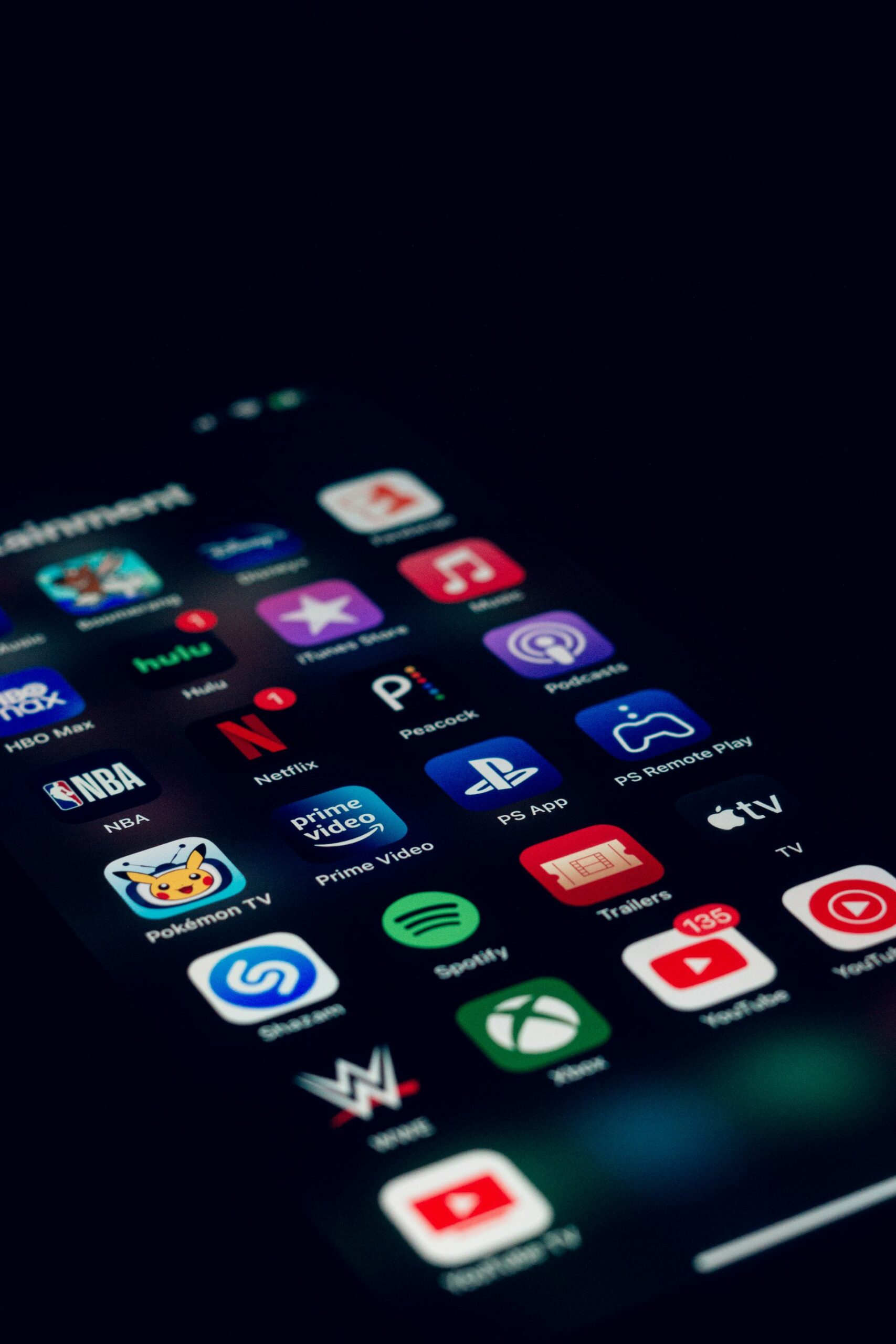AI Voice Technology: Transforming the Entertainment Experience in 2025

Photo by Rashidul Islam on Unsplash
Introduction: The Rise of AI Voice Technology in Entertainment
Artificial intelligence (AI) voice technology is rapidly evolving, redefining how entertainment is created, consumed, and experienced. By blending machine learning, natural language processing, and speech synthesis, AI voice tools generate and interpret speech with astonishing human-like quality. This transformation is not only enhancing content creation but also enabling new forms of storytelling, audience engagement, and accessibility-reshaping the very fabric of the entertainment industry [1] .
What Is AI Voice Technology?
AI voice technology enables computers to replicate, understand, and generate human speech. These systems analyze language patterns, tone, and inflection to deliver voiceovers and interactive experiences that are natural and emotionally engaging. Widely used in digital assistants, real-time translation, and now media production, AI voice technology removes historic barriers to creating high-quality audio content [3] .
Key Applications in Entertainment
1. Voice Synthesis and Dubbing
AI-driven voice synthesis allows studios to create realistic dialogue for films, games, and animation, even recreating voices of actors or generating entirely new voice characters. This technology is often used for dubbing foreign language content, restoring lost audio, or reviving performances of classic actors. For instance, advanced AI models can now mimic the unique vocal traits of individuals, providing seamless localization and content expansion opportunities [1] .
2. Personalized and Interactive Experiences
AI voice technology powers customizable, interactive entertainment. Viewers can engage with AI hosts or virtual influencers that adapt their responses in real-time, deepening immersion. Dynamic storytelling is another frontier, where AI-driven narratives adjust plotlines based on audience choices or reactions, fostering a co-created experience between humans and machines [1] . Recent live event activations have employed AI announcers who interact with fans, demonstrating how voice AI can personalize mass experiences [3] .
3. Content Creation for Digital Media
AI voice generators are now essential for content creators producing videos, podcasts, and online ads. These tools allow for rapid, cost-effective voiceover production without the need for traditional recording studios. The global market for AI voice generators is projected to reach USD 17.16 billion by 2025, indicating robust adoption among professionals and brands [2] . Whether you’re a solo creator or a studio, you can leverage these tools to increase output, maintain consistent voice quality, and localize content at scale.
4. Accessibility and Inclusivity
AI voice technology has a significant impact on accessibility. Screen readers and real-time audio descriptions make entertainment more accessible for people with visual impairments, while AI-powered translation and subtitling break down language barriers. Many streaming platforms integrate these features, improving the inclusivity of their offerings [5] .
Career Opportunities: AI Voice Acting and Beyond
The rise of AI voice technology has created new career paths in the entertainment industry. AI voice actors, digital content creators, and virtual influencer managers are in high demand as studios and brands seek talent that can work with, train, and enhance AI-driven productions. Roles such as motion capture performers and VR/AR actors are also growing, reflecting the broader shift toward immersive, tech-driven entertainment experiences [4] .
If you’re interested in these emerging roles, consider building skills in:
- Voice acting and narration, with a focus on working alongside AI tools
- Digital media production and editing
- Understanding AI systems and training datasets
- VR/AR content creation and acting
To find opportunities, you can search entertainment job boards, talent agencies, and specialized platforms for digital creators. Many organizations offer online training in voice technology, AI, and digital performance. For those without experience, starting with platforms that offer AI voice generator tools and tutorials is a practical entry point.
Implementing AI Voice Technology: Step-by-Step Guidance
Entertainment professionals and creators interested in adopting AI voice technology can follow these general steps:
- Identify Your Needs: Are you seeking to automate voiceovers, enable real-time translation, or create interactive narratives?
- Research Available Tools: Major AI voice providers include ElevenLabs, PlayHT, Speechify, and Resemble AI. You can compare features, pricing, and voice libraries on each provider’s official site. For a practical overview, research “AI voice generators 2025” to find recent reviews and tutorials [2] .
- Test and Customize: Most platforms offer free trials or demo tools. Experiment with sample scripts, adjust voice parameters, and preview results to ensure quality and authenticity.
- Integrate with Your Workflow: Many tools allow integration with popular video editing and podcast platforms. Check for plugins or API access for seamless production.
- Ensure Compliance: When using synthesized voices, always secure appropriate rights and consider ethical implications, especially when replicating real individuals’ voices.
- Monitor Results: Gather feedback from your audience to refine and personalize your use of AI voice technology. Analytics tools can help you assess engagement and reach.
If you encounter challenges or have questions about implementation, many providers offer detailed documentation and customer support. You can also consult communities on forums dedicated to AI, digital media, and voice acting for peer advice.
Potential Challenges and Solutions
While AI voice technology unlocks new creative possibilities, it also presents challenges:
- Authenticity: Audiences may perceive AI-generated voices as less genuine. To address this, creators should blend AI with human narration or focus on unique, personal storytelling [4] .
- Ethics and Rights: Replicating real voices requires explicit consent. Always verify legal requirements and use reputable providers who follow industry standards.
- Quality Control: Not all AI voices are created equal. Regularly test and update your tools to maintain high production quality.
Alternative approaches include collaborating with professional voice actors for key roles or using AI voice for non-narrative functions such as background characters, translations, or accessibility features.

Photo by BoliviaInteligente on Unsplash
How to Access AI Voice Technology and Related Services
To start using AI voice tools for your entertainment projects, you can:
- Search for “top AI voice generators 2025” to find recent, trustworthy reviews and official product websites. Compare features and pricing before selecting a provider.
- If you’re a business, contact enterprise providers directly through their official contact forms for demos and customized solutions.
- For accessibility options, consult the help or support pages of major streaming services, or visit advocacy organizations for resources on accessible media technology.
- If you wish to pursue a career in this field, look for online courses in voice acting, digital media, or AI technology through established educational platforms.
When in doubt, seek out official provider websites or contact their customer service for detailed guidance, rather than relying on third-party aggregators or unverified sources.
Future Trends: What to Expect Next
The AI voice industry is forecast to grow rapidly, with more realistic voices, greater interactivity, and expanding applications in gaming, live events, and virtual reality. As 5G and mixed reality technologies mature, expect real-time co-creation between audiences and digital hosts, deeper personalization, and a new era of interactive entertainment [1] . Staying informed about these trends will help you remain competitive and ready to leverage the next wave of innovation.
References
- [1] Calibraint (2025). 10 Powerful Use Cases of AI in Media and Entertainment.
- [2] Create and Grow (2025). Top 10 AI Voice Generators in 2025.
- [3] Groove Jones (2025). The Evolution and Impact of AI Voice Technology in Marketing and Experiential.
- [4] AllCasting (2025). Top 5 Entertainment Industry Jobs That Will Dominate 2025.
- [5] Voices.com (2025). 2025 AI Voice Trends.



